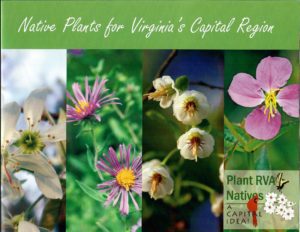Why You Should Plant Native Plants
The Benefits of Choosing Natives for Your Garden and Landscape
Introduction
Over the past century, urbanization has taken intact, ecologically productive land and fragmented and transformed it with lawns and exotic ornamental plants. Unfortunately, most of the landscaping plants available in nurseries are alien species from other countries. Landscaping choices have meaningful effects on the populations of birds and the insects they need to survive.
Planting native plants in the garden or landscape offers numerous advantages for both you and the environment. Native plants are species that have evolved and adapted to the local region’s climate, soil, and wildlife over thousands of years. Whether your garden is large or small, sunny or shady, wet or dry, you can find natives to fit your specific needs. Native plants include wildflowers, ferns, grasses, ground covers, shrubs, and trees. Choosing natives is a sustainable and rewarding way to enhance your outdoor space. Here’s why.
1. Support Local Wildlife
Native plants provide essential food and habitat for local birds, mammals, insects, butterflies, bees, other pollinators, as well as reptiles and amphibians which are under increasing stress from climate change. Many native animals rely on specific native plants for survival.
- Food Sources: Native plants produce fruits, seeds, nectar, leaves, and berries that are vital for birds, insects, and mammals.
- Habitat: Grasses and wildflowers offer shelter, food, nesting locations, and nest-building materials, helping to maintain biodiversity.
- Ecosystem Balance: Native plants support local ecosystems by fostering relationships with native insects, which in turn attract birds and other wildlife, creating a balanced food web.
- Soil Health: They improve soil quality and prevent erosion, which benefits all organisms that rely on healthy land.
2. Require Less Maintenance
Lawns and the ubiquitous bark-mulched landscapes are notorious for requiring profuse amounts of artificial fertilizers, synthetic chemical pesticides, and herbicides. Since native plants are already adapted to the local climate and soil, they typically thrive in the soils, moisture, and weather of the region, which means less supplemental watering and fertilizing. They are typically less prone to pest problems that may require toxic chemicals that can enter our ecosystems and waterways.
Native plants may naturally reduce your mowing needs by up to 75% when used to replace traditional turf grass. This helps reduce air pollution as well as excessive carbon from the burning of fossil fuels (gas lawn mowers and blowers), which contribute to global warming. Native plants can sequester more carbon by taking it out of our atmosphere and storing it in the soil through their deep root systems, as compared to many non-native ornamental garden plants.
This means less time, effort, and money spent on upkeep compared to non-native species.
3. Preserve Local Heritage
Planting native species helps maintain the region’s natural heritage and beauty. It also connects you to the history and ecology of your area, fostering a sense of place and environmental stewardship.
Conclusion
By choosing native plants, you create a garden that is more sustainable, easier to maintain, and supportive of local wildlife and environmental health. Whether you have a small yard or a large property, planting natives is a simple and impactful way to make a positive difference.
Additional Information Sources:
National Wildlife Foundation – Plant Native
Chapter 19: Virginia Native Plants – Virginia Cooperative Extension Gardener Handbook
Why Native Plants Matter | Audubon
Beyond the Garden Gate: How Native Herbs Sustain Us – National Garden Bureau
Conserving Plant Heritage: Leaders, Programs, and Strategies for Biodiversity – Old Seed
How Do Native Plants Help the Environment? – The Institute for Environmental Research and Education
By Master Gardener, September Sickinger


